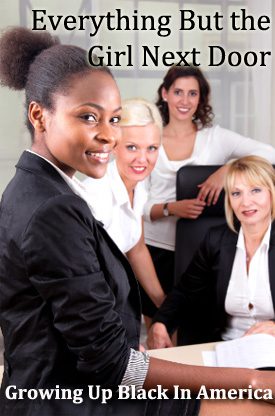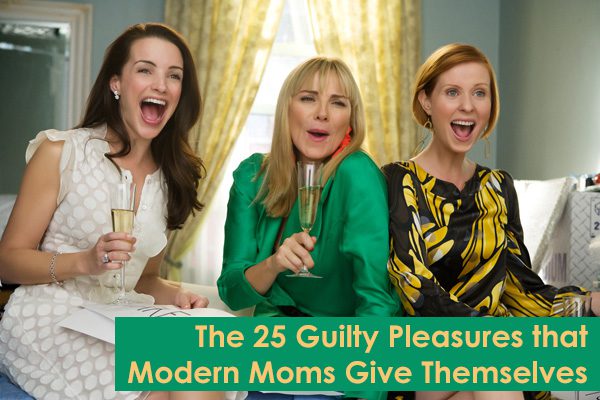Everything But the Girl Next Door: Growing Up Black In America
 “I am tossed, a grenade harpooned into the streets of Barbie faces. I have a detonation of hair and mutilated features: wide nose, thick lips, and boogie man eyes, deep when they hit the soul. I am enough to be a monster by society’s standards.” –The Willow Tree by Elan Carson
“I am tossed, a grenade harpooned into the streets of Barbie faces. I have a detonation of hair and mutilated features: wide nose, thick lips, and boogie man eyes, deep when they hit the soul. I am enough to be a monster by society’s standards.” –The Willow Tree by Elan Carson
I remember sitting on the floor of my kindergarten classroom, eyeing the creamy light-colored palms on my hands and feet thinking, “I’m partially White.” I quickly dismissed the brown-hued flesh covering the rest of my body, asserting I would later look and be “normal.”
I’m not sure how at this early of an age I was already aware of race and that if you were White, you possessed a certain authority. Maybe it was the Disney movies I watched on repeat, donning a long terry cloth towel as my pseudo wig to hide my furiously tangled, short hair. Or it could have been the Brady Bunch, and my infatuation with hoping I would turn out like Marcia. Even the television set was turned on in the morning revealing bubbly Suzanne Somers, flashes of blonde hair nurturing my toddler admiration for all things bright and subsequently, “pretty.”
Later, I would grow up to develop social anxiety, depression and an unhealthy complex with my racial identity.
Fast forward from kindergarten to a few years later. I became cognizant that at my predominantly, African-African elementary school, girls of color with longer hair and fairer skin were immensely more favored by peers. These girls would casually shuck out comments on having “mixed Native-American heritage,” while others, including myself, played up their exoticism, while downplaying our own self-identity.
Later, during my high school years, I would hold bitter conversations with my African-American male friends who frequently commented that compared to other ethnicities, women of color simply weren’t desirable to men. We were labeled as loud, ghetto, brazen, uneducated and as a whole, unattractive. Even my father would state that if I had my mother’s complexion, eye color, or hair length—my mother being a woman of mixed heritage–that I would be that much more prettier. I started to let everyone’s words configure and sculpt a visual of myself that was entirely untrue.
I fought to overturn those negative thoughts, finding ways to prove that I was in fact smart, creative, easy-going, well-spoken, and even pretty, all while being Black. I didn’t get far though, as I looked to mainstream White role models like Lizzie McGuire, Angela Chase, and even Daria, to distance myself from the stereotypes budding around my African-American heritage.
I tried to reconnect with my roots by reading literature like The Bluest Eye by Toni Morrison and Invisible Man by Ralph Ellison as well as the soulful, piercingly honest poetry Maya Angelou and Langston Hughes wrote. It didn’t hit me until college, though, that maybe I was fighting a losing battle.
After making the long haul from racially segregated Detroit, Michigan to Southern California, I thought I would find solace in what I perceived to be the culturally diverse folds of this new state. Enrolling in a private university, I was bound to join scores of students from different cultural backgrounds. What I found was nearly the complete opposite.
No one could mentally prepare me for the racial jokes, underhanded discrimination, or even unfiltered comments from predominately White students who would occasionally preface their curiosities with “I’ve never seen a Black person before…” I had relocated from one non-racially diverse space to another and this started to take a toll on my psyche.
Before I even graduated, I suffered a complete meltdown. I wasn’t sure how to come to terms with who I was, because I didn’t even know where in American society I belonged. I managed to become everything the media had wanted me to be: smart, funny, creative, down-to-earth, all tossed in with a touch of sarcasm. But it would never matter, I realized, after spending one evening with a drunken colleague, who blurted something to the effect of, “You’re such a cool girl. Too bad you aren’t White. If you were ,you could rule the world.” There it was, spoken aloud.
From that day on, I decided that this battle with my skin color was no longer a “me” problem, as I had diagnosed in the past. It is an everyday dilemma that pulls at each of us. I can still feel it when I hear guys that I know swoon over the girl-next-door charm of Emma Watson, and I realize that twenty years later there still isn’t an example of her wholesome, easy-going, good-natured characteristics packaged into an African-American role available for mainstream consumption. These realizations hurt even more, when I read stories about women of color from various cultures purchasing skin lightening creams in hopes of reaching the pinnacle of America’s standard of beauty. Who wants to exist like that, when the truth is our stories are just as valid without altering who were are?
Looking back, I now know I will never be considered the girl-next-door figure or any other archetype designed to describe White women. I am not the “blonde bombshell,” “mysterious brunette,” or even quirky Zooey Deschanel. And I’m OK with that. I’ve decided that being boxed in with a certain stereotype doesn’t allow me the capability to grow and nurture who I am, but to feed an out-of-date machine running on repressed ideals.
Instead of trying to mold my identity into society-appropriated “norms,” I, as a woman of color, have a unique cultural perspective that I get to share with others because of my race, a luxury I’m not sure I would have if I were simply labeled the girl next door. This alone now motivates me to appreciate who am I every day.
About the Author
by Elan Carson, author of The Willow Tree; follow her on Twitter @WillowTreeNovel

